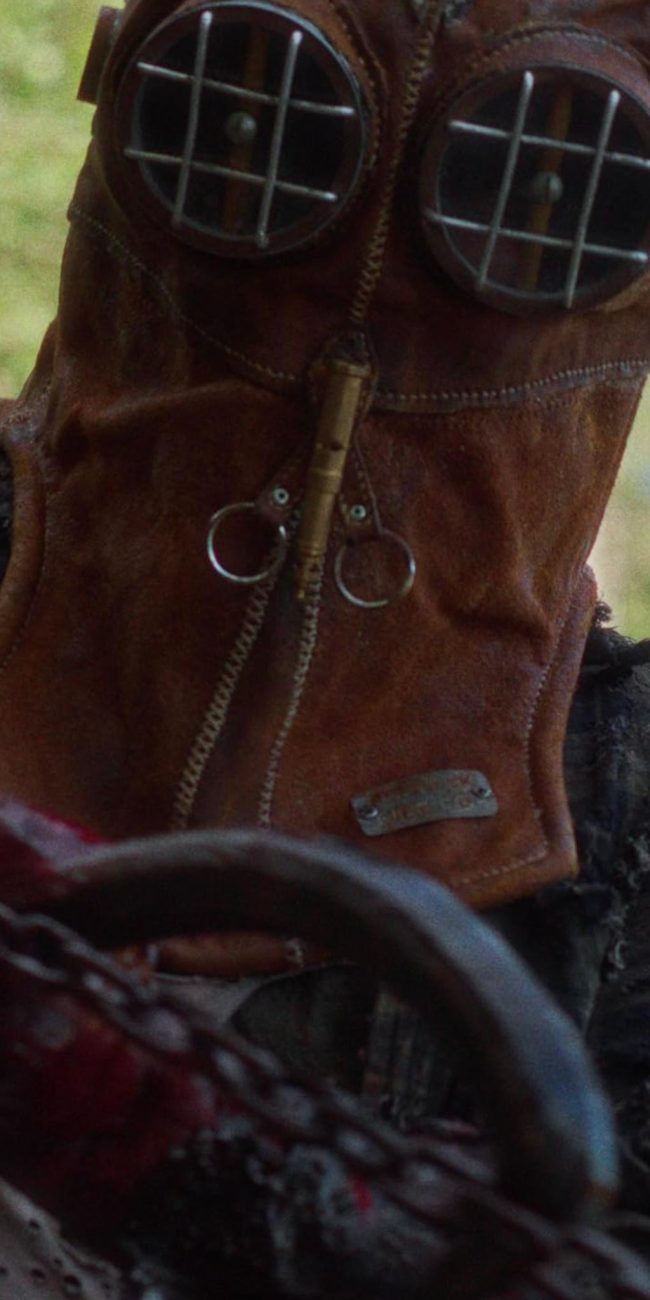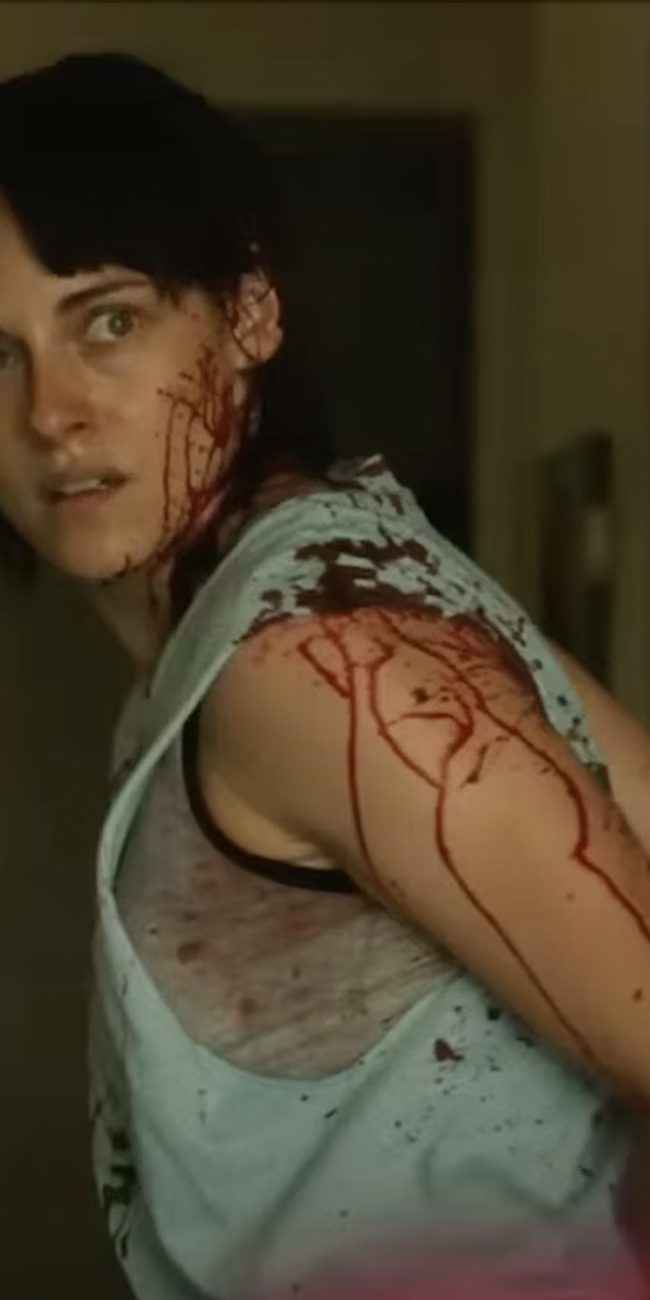Tze Chun doesn’t just write and direct his own films. He’s also an accomplished visual artist, editor, cinematographer, as well as a screenwriter-for-hire. After his 2007 short film Windowbreaker made it into the Sundance Film Festival, Chun set his sights on a more ambitious project. Tapping directly into his own childhood, Children of Invention tells the tender story of two young Asian-American children whose mother finds herself a victim of pyramid schemes in and around Boston. Chun’s debut feature is a mature and restrained effort, building to a quietly poignant climax, and it marks the emergence of a refreshing new voice in the cluttered indie landscape. I sat down with Chun for a conversation at this year’s Sundance, where his film world premiered in the Spectrum section. Having not posted it before now, and in light of Chun’s recently awarded Special Jury Prize at the Sarasota Film Festival and Special Jury Award at the San Francisco International Asian American Film Festival, it seems appropriate to publish it for the world to read. Visit the film’s official website to purchase a limited-edition deluxe DVD of the film, which also includes Windowbreaker.
H2N: First of all, I want to congratulate you. It’s hard when there’s a bar of expectation for a film, and yours had created one for me.
TC: Really? If that’s the case, then awesome.
H2N: Aside from the performances, which we’ll get to, I was most struck by the film’s writing and careful story construction. It’s clear that you were working from a screenplay, not just making it up as you went along.
TC: Yeah.
H2N: How close to the shooting script is the film that’s up there on the screen?
TC: I think besides some lines that were cut, it’s pretty much word for word. Which was actually very surprising when we went in and started shooting. My short film in 2007 that was at Sundance, Windowbreaker, we had non-actors that we didn’t show the script to, and the kids were young. They were five and four years old. So, a lot of the dialogue in that film was just me or my producer sitting off screen and prompting the kids with questions until we got the lines that we wanted. And we thought that would be the process that we’d use for Children of Invention. So we cast the film, we fell in love with these kids, and they came to set and they had actually memorized all their lines already, and so it became one of those things where we said, “Well, let’s see if this works, let’s see if we can get naturalistic performances out of them.” And during rehearsals we just talked about certain lines, and the kids would say, “I probably wouldn’t say that line because I don’t know what that word means,” and so we’d cut out the words and it was adorable, they’d pencil in the lines as we decided on them. So when we actually started shooting we were pretty much set on the script. It was one of those things where I felt like if we were gonna go that way, we would really want to showcase the kid actors. A lot of movies with child actors, you can tell that they’re cutting around performance, and so, as we got into the shoot, we said, “If we can, let’s try to do every scene in one take. If they’re walking to the camera, let’s not break it up, let’s try to get all of their performances and show that these kids can actually act and they’re in character and are embodying their character.”
H2N: How many drafts did you go through?
TC: This was actually a pretty fast process, which was surprising to me, certainly. I started writing the full script, I had come up with a treatment while I was writing for a TV show, and when the writers’ strike happened I said, “Okay, now’s my chance, I’m gonna write something and direct it, I don’t know how long it’s gonna take.” But so I wrote the screenplay basically from December to March 1st of last year. I sent it to a friend of mine who I’d met at IFP who was a film financier, this guy Dan Cogan, who runs Impact Partners. They’re a documentary film fund that has put money into Born Into Brothels and Freeheld and Ghosts of Abu Ghraib. I sent it to him on March 1st to get a recommendation for the Sundance Labs, and a couple weeks later he called me and he said they’d been looking for a narrative to do for a long time and he thought he could get the money for me to make the movie. And so, by the time the Sundance Labs actually happened, we were already shooting. So I was doing rewrites of it as we were casting and going through pre-production.
It was an interesting process. I’ve never had something happen so quickly. For people who don’t know, I do writing and directing for indie film and then to make money I do more commercial screenwriting, which is always kind of interesting. The TV writing thing was great, just because you have to finish something by the end of the day so someone can shoot it, and it taught me a lot about writing quickly and on the fly.
H2N: I guess now I have to get off the writing and into performance because they are so exceptional. Especially the little girl. Were they actors?
TC: They weren’t. You know, they had been on a couple of auditions before, and I think we got them at the exact right time where they had some idea of what the process was and had some expectations about it and knew that they had to, like, show up on time. But they were also fresh enough that they didn’t have any expectations as to what the process should be. We found the kids, they had previously been cast in a scene from Transformers 2 that eventually got cut.
H2N: Really?!
TC: Their audition tape is pretty funny. It’s them, they’re standing in front of the camera, and you can hear someone in the background, the casting director, going, “Okay, you’re eating ice cream, you’re eating ice cream, you’re in Hong Kong and OH MY GOD, OH MY GOD, THERE’S A BIG ROBOT, RUN!!!” And I’m sure they got blown up in Transformers 2. The scene got cut, but we cast them and so this is actually their first film credit.
H2N: Have you seen Great World of Sound, or has anyone made that connection to your film yet?
TC: No one’s made that connection, but I remember watching that in the theater, I had been working on this treatment, I’d been thinking about this film, and there’s something about that movie that taps into the same kind of themes: desperate Americans, shortcuts to making money. I had a very personal connection with it, just ‘cause of remembering all these things that I went through when I was a kid, and also that ended up eventually in Children of Invention. I definitely felt a brotherhood with it.
H2N: It wasn’t even the scam aspect, per se. But also even the score at times. There was a synthesizer moment and it was a little bit of a montage and that connected it for me. So none of it was in a completely direct way but I still got a feeling of cousinship. Not even brotherhood, necessarily.
TC: But actually, there’s a montage in Children of Invention where Cindy (Cheung), who plays Elaine the mother, pitches a bunch of people what we eventually realize is a scam. I’m not exactly sure what the process was in Great World of Sound but I assume it’s something similar where we had non-actors come in and Cindy had talked a lot to my mom who had been in a lot of these pitch sessions and she told her what types of things she should be talking about, like anytime somebody mentions something about their own life you glom on to it and you use that to try to sell them on something. It’s a lot like pitching movies. A lot of that stuff in the montage there is improvised, which I assume Great World of Sound also did.
H2N: They actually put an ad in the paper and broke the news to them afterwards.
TC: That’s right, that’s right.
H2N: How about in a technical sense, were there any films you were looking at or because this is so seemingly autobiographical, were you relying on real life and your own past for inspiration?
TC: My short film Windowbreaker…
H2N: Which I have not seen, by the way!
TC: I’ll send you a copy of it. It was so off-the-cuff. We shot it on two weekends in Boston in my childhood home, my mom is in it, we cast the two kids like two weeks before, and I shot it myself. It’s a little bit more jump-cutty, a little bit more documentary style. And when I brought on our cinematographer, Chris Teague, who’s actually a fantastic director in his own right—he directed a movie called Thorndike, which played at Tribeca and Woodstock and a bunch of other festivals—we wanted it to be somewhere between this improvisational, cinema verite look and something a little bit more polished. So we talked a lot about it. We talked about Medium Cool, the scene where all the reporters are talking to each other and there’s that big argument that was one of our references for the Betty Cardellini pyramid scheme party.
H2N: That feels so effortless and real. Were those all non-actors?
TC: Some of them were actors and some of them were non-actors. We tried to mix it up. I wish I could say it was solely an aesthetic concern but it was also that we couldn’t pay. We did a SAG low budget agreement so you can save a hundred dollars that way!
I’m trying to think of other visual references. Chris and I didn’t really watch a lot of movies together. We talked a lot. He’s seen a lot of films. He was in grad school when I was in undergrad at Columbia and I think we had some of the same reference points, screenings that had happened, and so there was a pretty easy dialogue between us.
H2N: You hadn’t worked with him before?
TC: I hadn’t worked with him before but he had moved into my apartment after I’d moved to LA.
H2N: Oh, really? That’s convenient; get a great DP to move in after you!
TC: He was really great to work with. We had to move quickly and we did move quickly in large part because of him and Joe Anderson, our fantastic focus puller. If you ever want to use a focus puller who has an almost creepy connection, a supernatural ability to pull focus on the fly. Every shot we used is usable, the focus is crisp and everything. He’s unbelievable.
H2N: What did you shoot on?
TC: We shot on a full size camera, which is a series of letters and numbers that I can’t remember and then also the HVX-200 with a 35 adapter. We switched between the two. For most of the night stuff we used the full size, because it was more light sensitive. And then all the stuff in the apartment was pretty cramped so we used the smaller camera.
H2N: Did it get tough with the kids? Were they exhausted? Or did you maintain appropriate hours?
TC: We tried to do short hours. It got to the point where, when you start out the day it’s like, “I’m gonna take these 34 shots,” and by the end of the day you’re like, “Well, I can combine these six shots!” It was good working with kids. I briefed the crew and said, “You know, there are gonna be days where it’s gonna feel like we’re not gonna get everything we need but it’s gonna be fine. We’ll improvise, we’ll combine shots, and if things aren’t working out we’ll just deal with it.”
Just in terms of working with the kids, I’ve worked with kids before, as a director, but it felt like a really special experience working with these two. The biggest problem I found working with them was that I had to try to make sure I didn’t underestimate their abilities. If something wasn’t going right, just explain to them fully and trust that they would understand. It’s so funny talking to kids, ‘cause they don’t have that actor thing when they’re listening and you can see that they’re listening. So I’m talking to Crystal, I’ll give her like a minute of direction and she’ll just be staring off or playing with something and she’ll be like, “Uh huh,” and she’ll do everything in the next take incorporating what I’ve told her, but it’s a very different experience than working with adult actors.
H2N: How do you feel about this week?
TC: It’s been good. I was here in ’07 with a short, and at the time I didn’t know anything about the film industry. I’ve known since I was 16 that I wanted to make movies, but it was my first time being exposed to it. I was so stressed out. I’d like lost my shit. I just thought, “I have ten days to make something of myself. If I don’t make anything of myself I’ll disappear into oblivion, nothing’s ever gonna happen!” And luckily I had a couple film friends who were older directors who had been through it before to give me some guidance. And this week has been remarkably calm. I’ve felt really relaxed going to the screenings and it’s been good meeting other directors and then meeting people after the screenings and hearing what they have to say about the movie.
H2N: And you have a lot of people from the film here, as well as your family, right?
TC: The joke is that more people showed up to Sundance than actually worked on the movie. Yeah, my mom and sister are here. Like I said, the story is a very personal story, a lot of it’s autobiographical…
H2N: Your mom had seen it before coming out here, though?
TC: Yeah. After the first screening I was like, “Mom, you can’t cry during every screening. We’ve got so many screenings left!” It’s been interesting seeing it with an audience, but it’s also been interesting seeing it with my mom and sister, who the movie is based on, and an audience at the same time. We brought everyone up for our Q&A afterwards and my mom answered a question.
H2N: What does your sister think about your portrayal of her?
TC: It’s interesting. My family has a very open dialogue about this stuff because there was a movie I was supposed to shoot before this, it was actually supposed to be shot in Malaysia, it was a story about my mother when she was growing up in Singapore. And my sister and I spent a lot of time going back and forth from Singapore and here and Hong Kong to interview my mom and her friends. So this isn’t the first time I’ve based something on my family’s life. Hopefully Children of Invention, You’re A Big Girl Now, which is the story of my mother growing up in Singapore, and another film will be part of a trilogy about family that’ll be about generations of people growing up in the US, but I have to wait until I have kids to do that one!
— Michael Tully












Pingback: THE 2009 HAMMER TO NAIL AWARDS – Hammer to Nail
invention prototype
He provides multiple non-equivalent definitions of the term, uses it to
refer to as many as six distinct kinds of entities, and divides ideas inconsistently into various genetic categories.